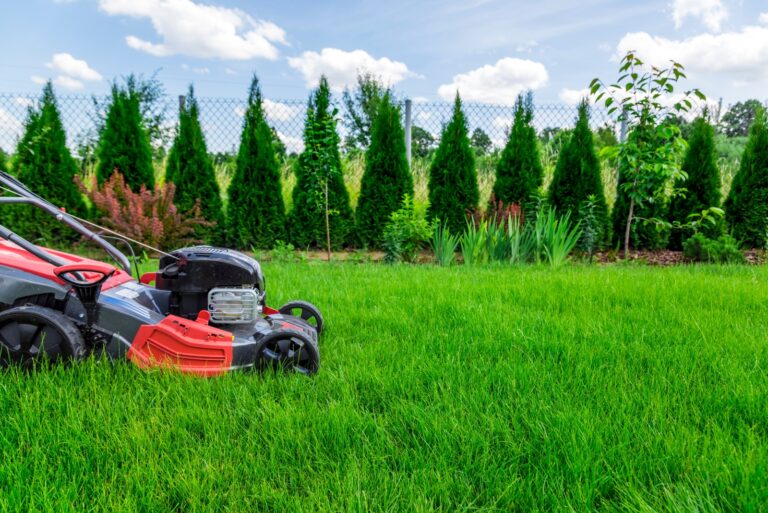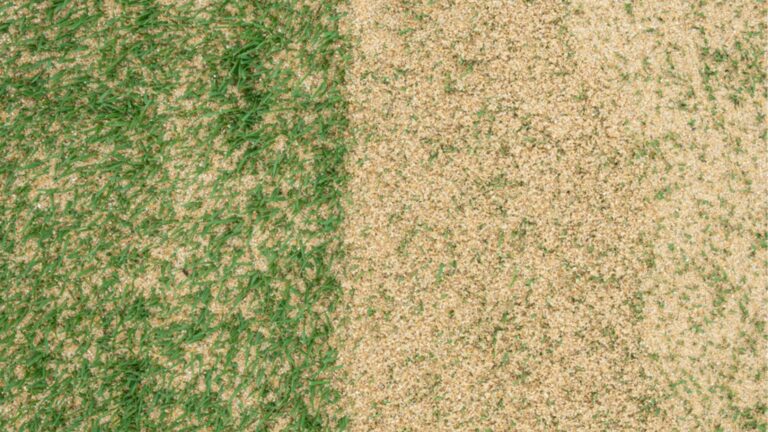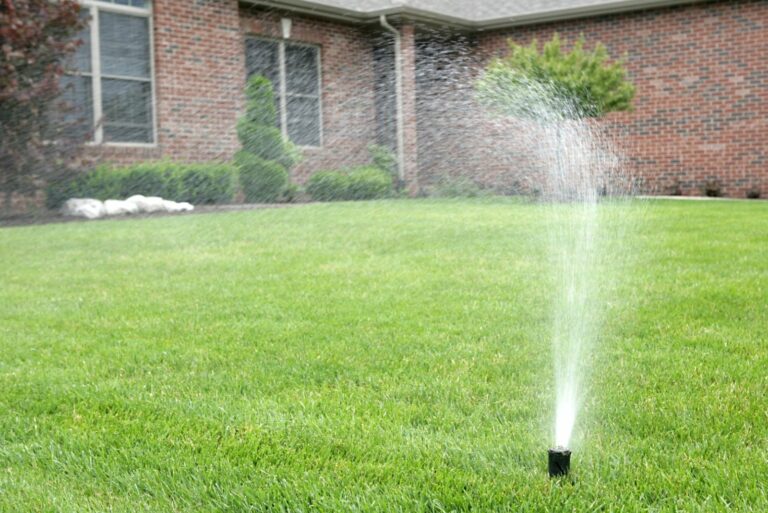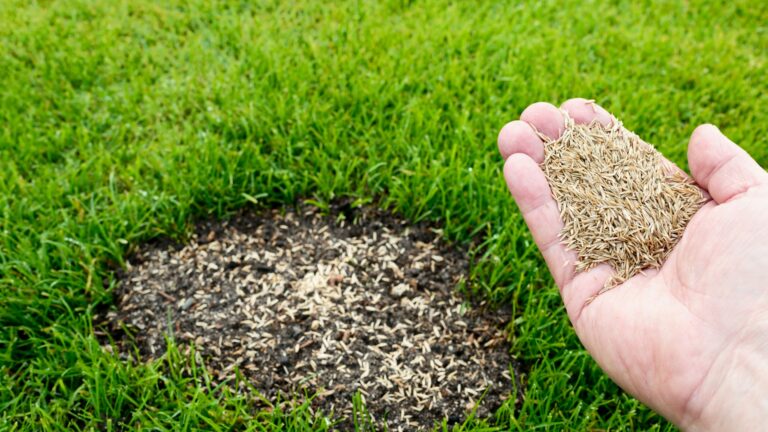The 9 Biggest Lawn Mistakes Ruining Tennessee Yards In Late Summer
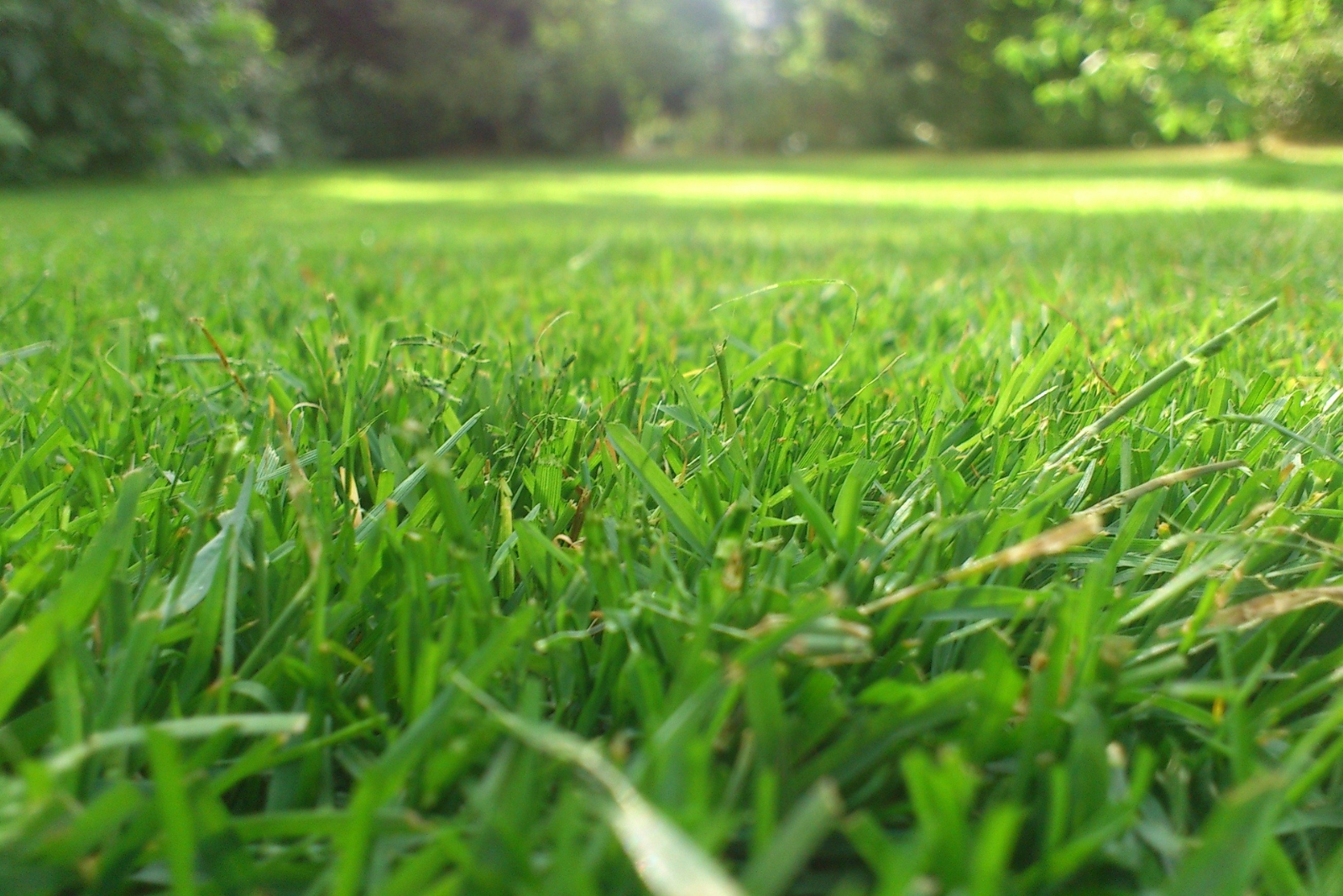
Tennessee’s hot and humid late summer can be brutal on lawns. Many homeowners accidentally damage their grass through common mistakes that are easy to fix.
Understanding these lawn care blunders can save your yard from turning brown and patchy when the August heat hits hardest.
1. Mowing Too Short
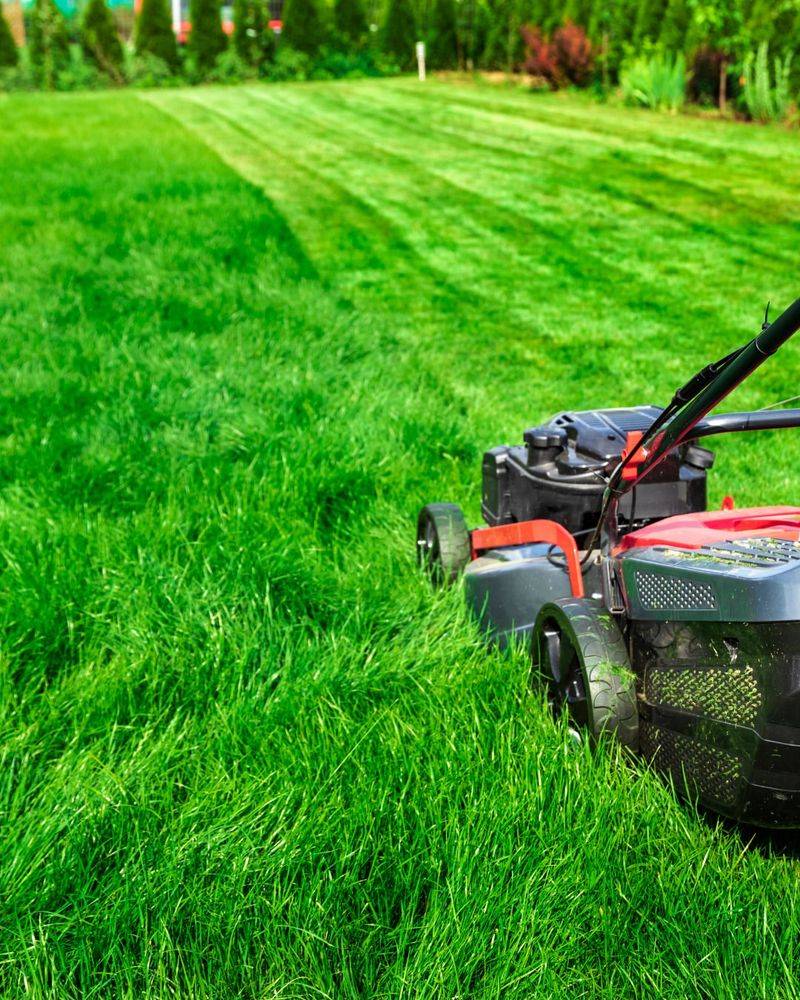
Scalping your lawn might seem efficient, but it’s actually harmful. Cutting grass too short exposes soil to sunlight, increasing water evaporation and stressing the plants.
Tennessee’s tall fescue and Bermuda grass varieties need different heights, but neither appreciates a buzz cut during late summer heat. Raise your mower deck to leave 3-4 inches for cool-season grasses and 1-2 inches for warm-season types.
2. Watering At The Wrong Time
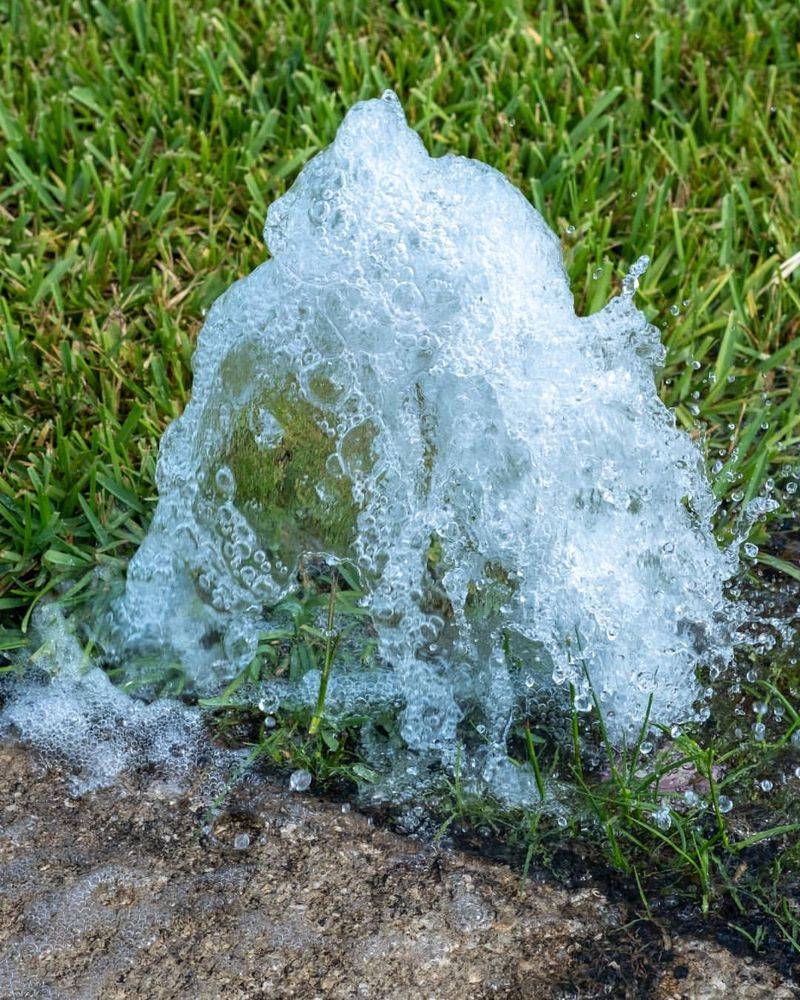
Sprinklers running at noon might feel like the right response to scorching Tennessee heat, but it’s actually wasteful. Most of that precious water evaporates before reaching grass roots where it’s needed.
Early morning watering (5-9am) allows moisture to penetrate soil before the day heats up. Evening watering might seem smart, but leaves grass damp overnight, creating perfect conditions for fungal diseases that thrive in Tennessee’s humidity.
3. Fertilizing During Drought
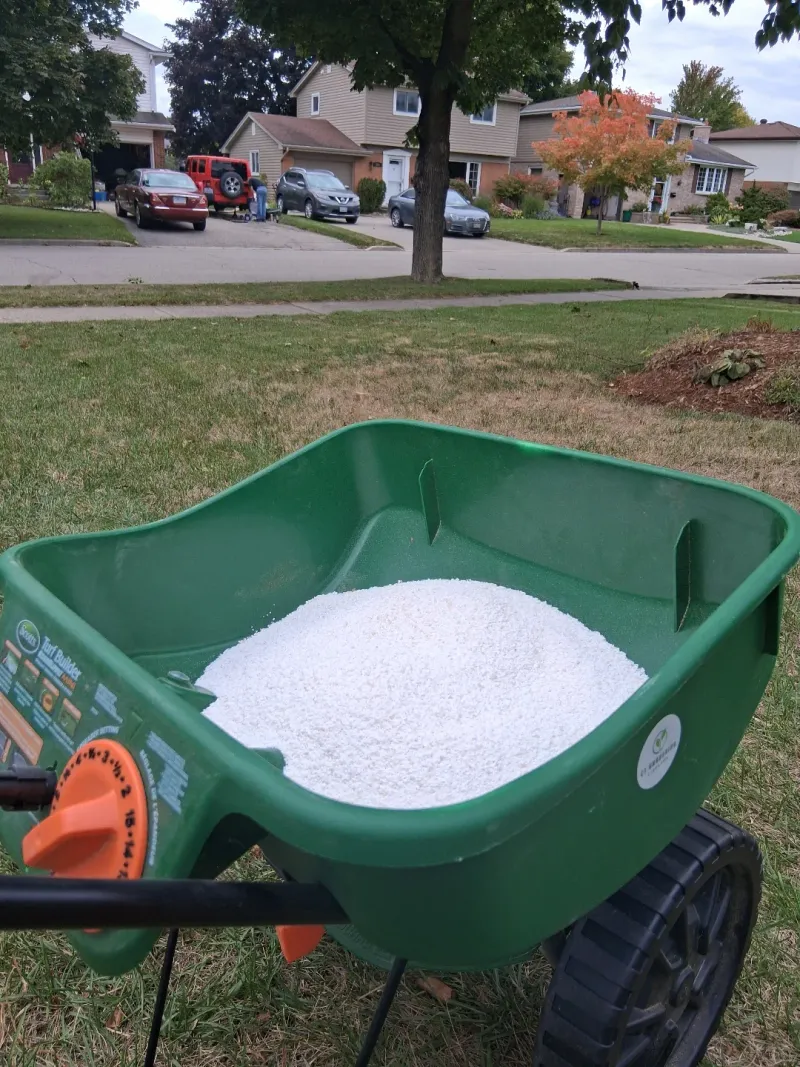
Dumping fertilizer on struggling grass during August drought seems like giving it a boost. In reality, you’re burning your lawn! Fertilizer requires water to break down properly.
Without adequate moisture, those nitrogen-rich granules just sit there scorching your grass. The resulting brown patches aren’t from lack of nutrients—they’re chemical burns. Save fertilization for spring or fall when Tennessee’s rainfall patterns better support nutrient absorption.
4. Ignoring Soil Compaction
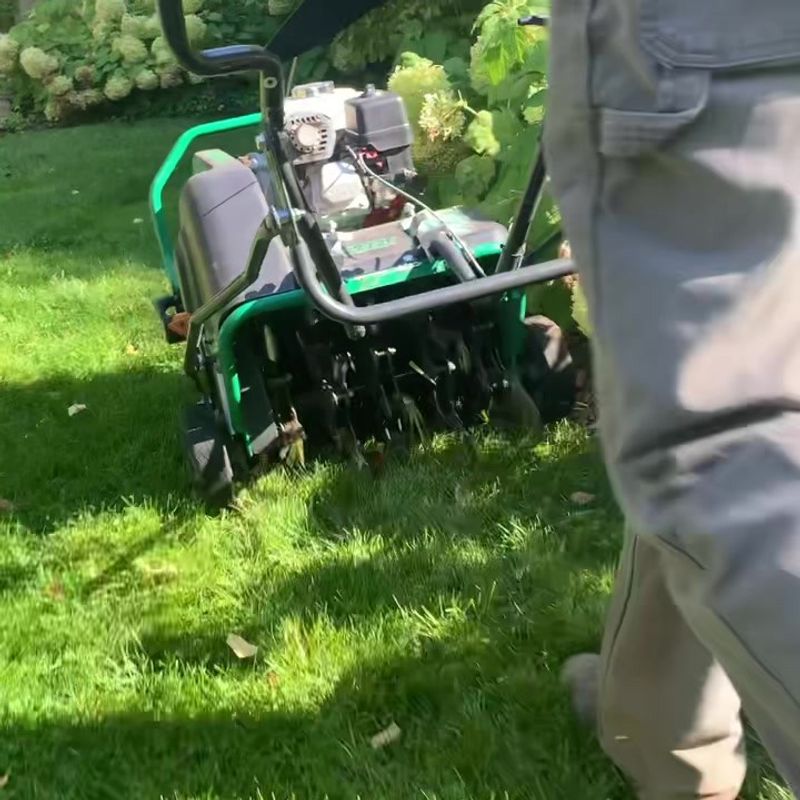
Years of foot traffic, play, and even mowing create invisible soil compaction that slowly suffocates grass roots. Compacted soil prevents water, air, and nutrients from reaching the root zone.
Many Tennessee homeowners never address this hidden problem. By late summer, compacted areas become obvious as dead patches that won’t recover despite watering. Core aeration—removing small plugs of soil—creates breathing room for struggling roots and revitalizes tired lawns.
5. Overwatering When It’s Hot
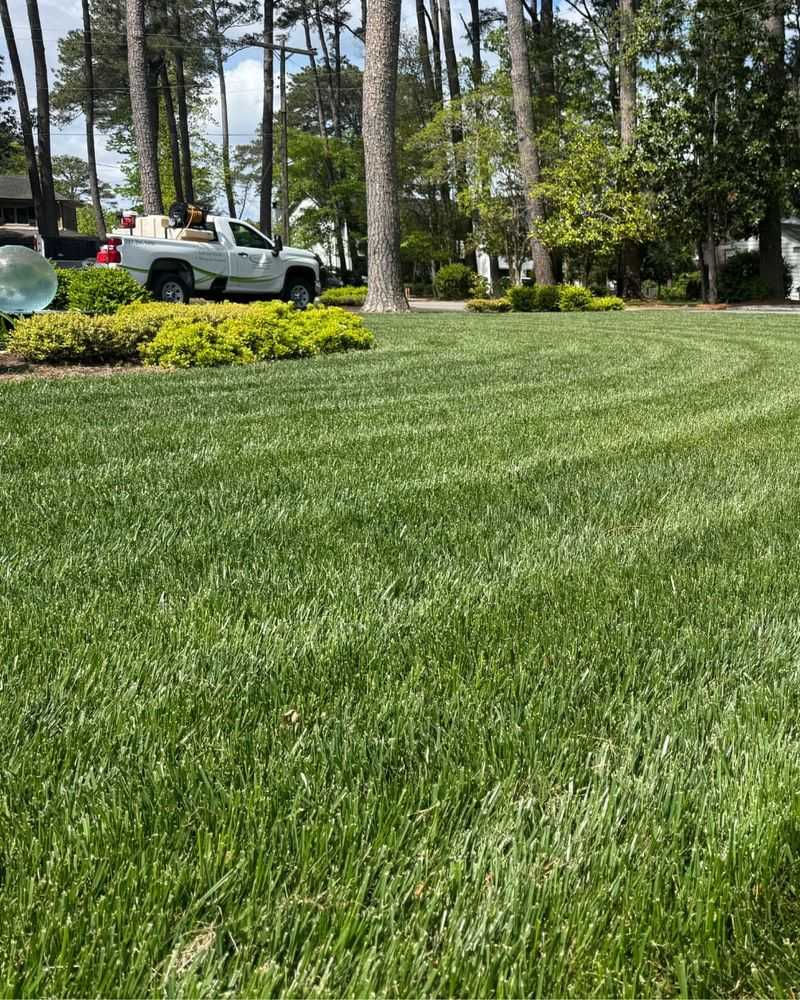
Drowning your lawn won’t save it from Tennessee’s August heat. Contrary to popular belief, daily shallow watering encourages weak, shallow root systems that can’t survive drought conditions.
Grass becomes dependent on frequent watering and collapses when you miss a day. Deeper, less frequent watering (1-1.5 inches twice weekly) forces roots to grow downward seeking moisture. This creates drought-resistant lawns that stay green even during Tennessee’s hottest weeks.
6. Using The Wrong Grass Type
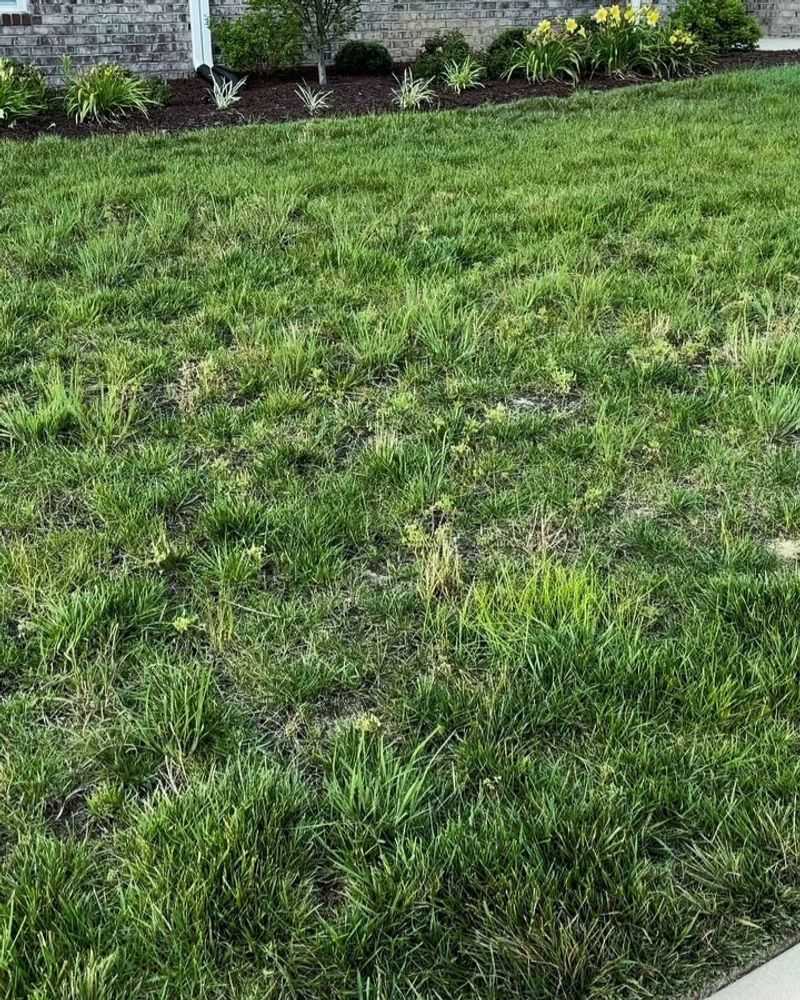
Fighting nature rarely works out. Many Tennessee homeowners plant cool-season grasses like Kentucky bluegrass that naturally go dormant (turn brown) during hot summers.
No amount of water will keep them green in August! Warm-season grasses like Bermuda or Zoysia thrive in our hot summers but go dormant in winter. The solution? Choose transition zone mixes specifically designed for Tennessee’s challenging climate, or embrace the natural dormancy cycles.
7. Letting Weeds Take Over
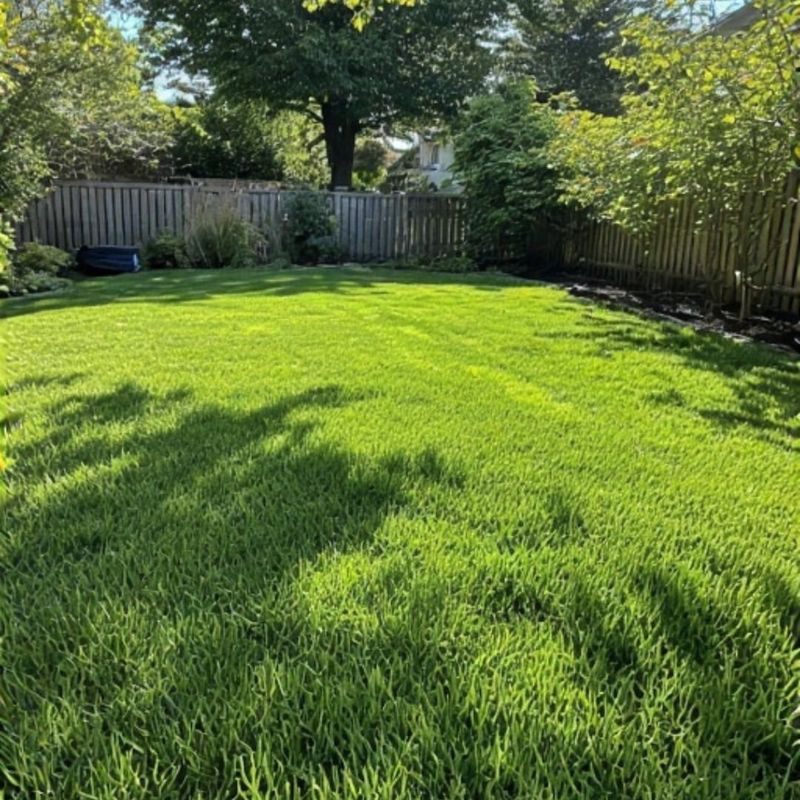
Summer weeds are opportunists that strike when grass is stressed. Crabgrass, dandelions, and clover quickly colonize thin spots in Tennessee lawns, stealing water and nutrients from struggling grass.
By August, many homeowners surrender to these invaders. The problem? Weeds set thousands of seeds in late summer that ensure next year’s battles will be worse. Spot-treating with appropriate herbicides now prevents a full-scale invasion next season.
8. Neglecting Lawn Equipment Maintenance
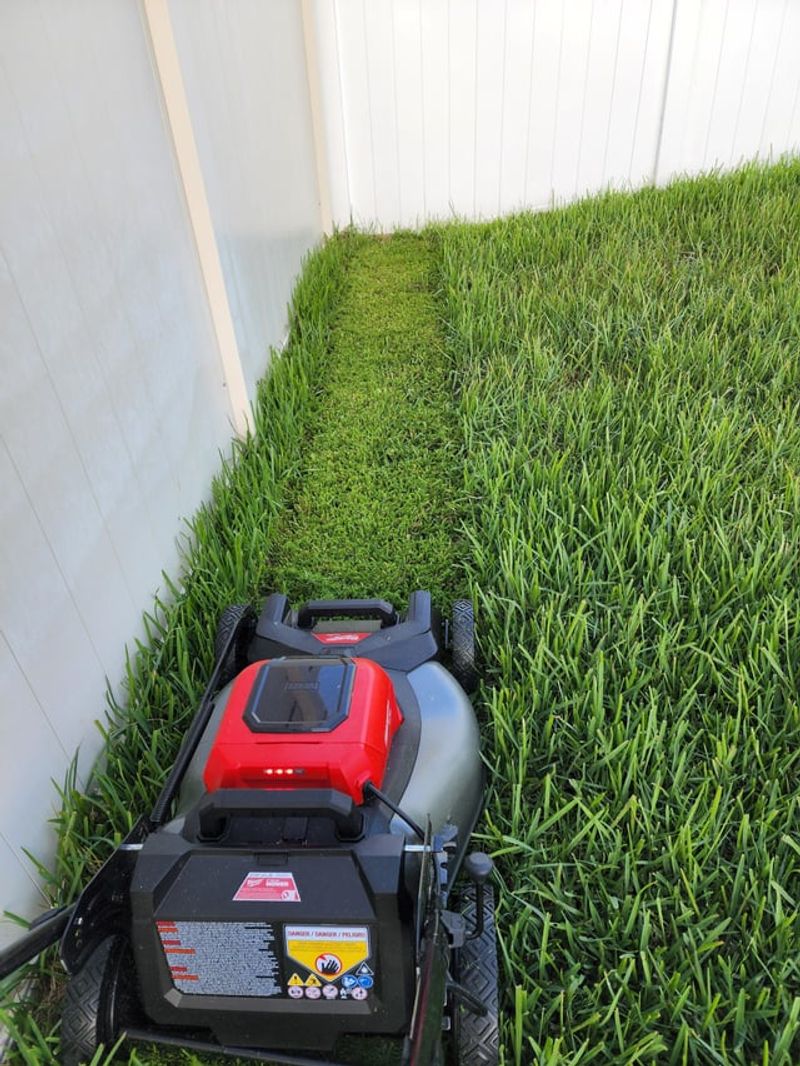
Dull mower blades tear grass instead of cutting it cleanly. Those ragged edges create stress and water loss during Tennessee’s hottest months when grass needs every advantage.
Brown-tipped grass isn’t necessarily dying—it might just be suffering from poor cuts. Sharpen blades at least twice during growing season. Clean equipment prevents spreading fungal diseases that thrive in late summer humidity. Simple maintenance protects your lawn from unnecessary stress.
9. Forgetting Pest Control
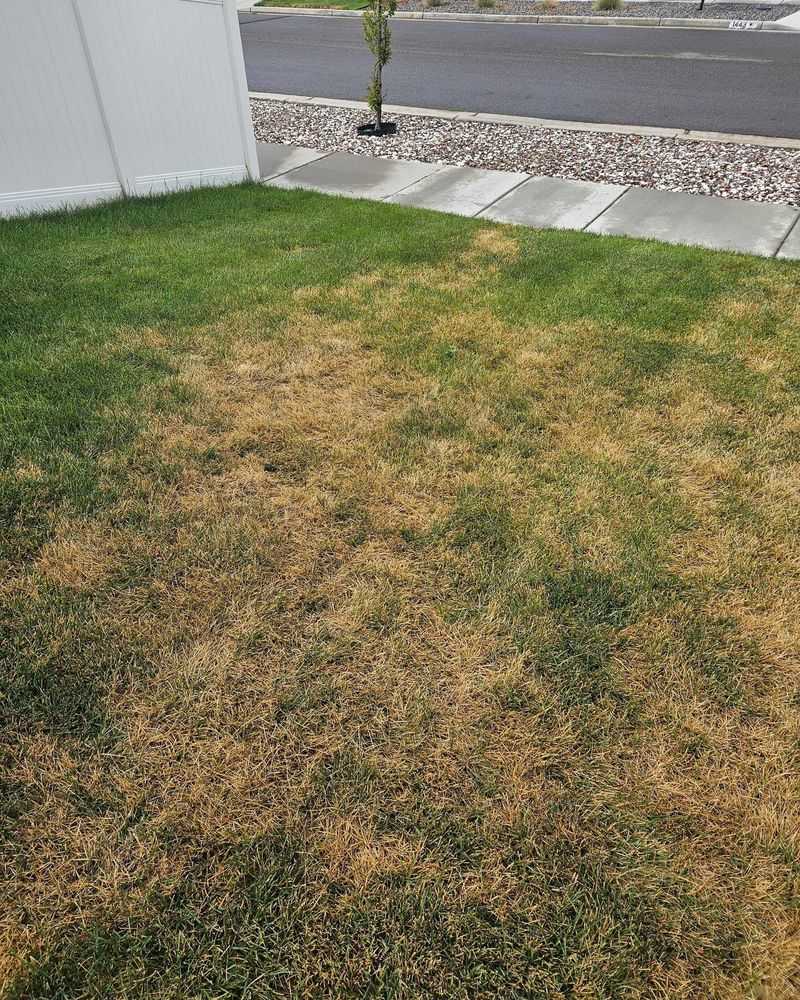
Mysterious brown patches in August might not be drought damage—they could be insects! Armyworms, chinch bugs and grubs feast on Tennessee lawns during late summer when grass is already stressed by heat.
These pests operate below the radar until damage becomes severe. The soap test (pouring soapy water on suspected areas) brings insects to the surface for identification. Targeted treatments applied at the right time can save your lawn from being eaten alive.

